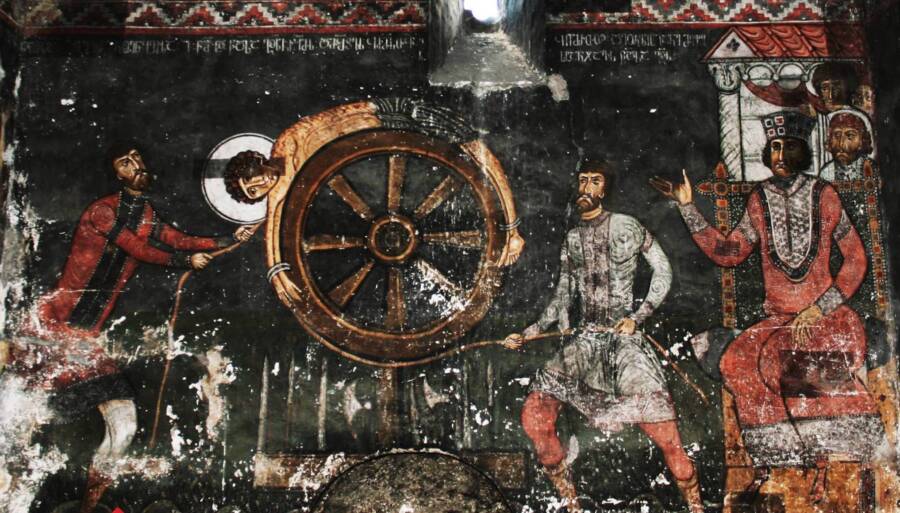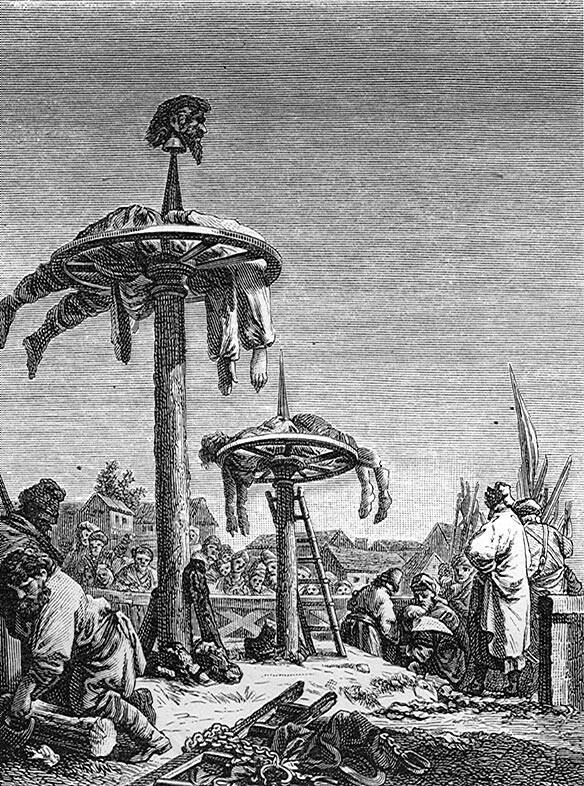Medieval Torture Devices: The Breaking Wheel

National Agency for Cultural Heritage of GeorgiaThe torture of Saint George on the breaking wheel.
The breaking wheel emerged in Roman times. Unlike some other medieval torture devices, its main purpose was for execution, not just torture.
People were executed by the breaking wheel in one of two ways. In the first, the victim was killed when their executioner dropped a large wheel on them, breaking their bones. In the second, the victim was tied to the wheel so the executioner could slowly break their bones with a cudgel.
During the Middle Ages, the breaking wheel was used with some frequency to ensure that the condemned died a torturous death.

The Picture Art Collection/Alamy Stock PhotoVictims of the breaking wheel often took anywhere from a few hours to several days to die.
In France, for example, executioners tied a victim to the breaking wheel and slowly rotated it as they struck the person with a cudgel. People found guilty of more minor offenses would be struck just once or twice before the executioner delivered the death blow, or the coup de grâce. People found guilty of more serious offenses, however, would be struck multiple times.
Meanwhile, in 15th-century Zurich, the condemned would be tied face-down with the wheel placed on their back. The executioner would strike them nine times — twice in each limb and once in the spine — before braiding their broken body through the wheel’s spokes and attaching it to a pole.
The victim, who was often still alive at that point, then slowly perished.





